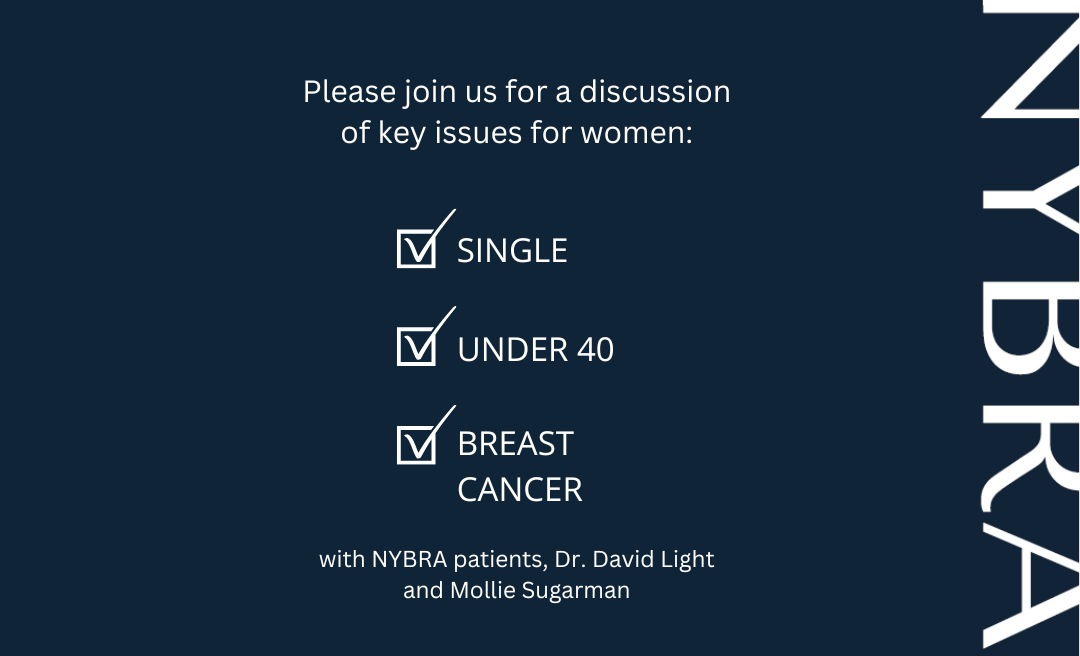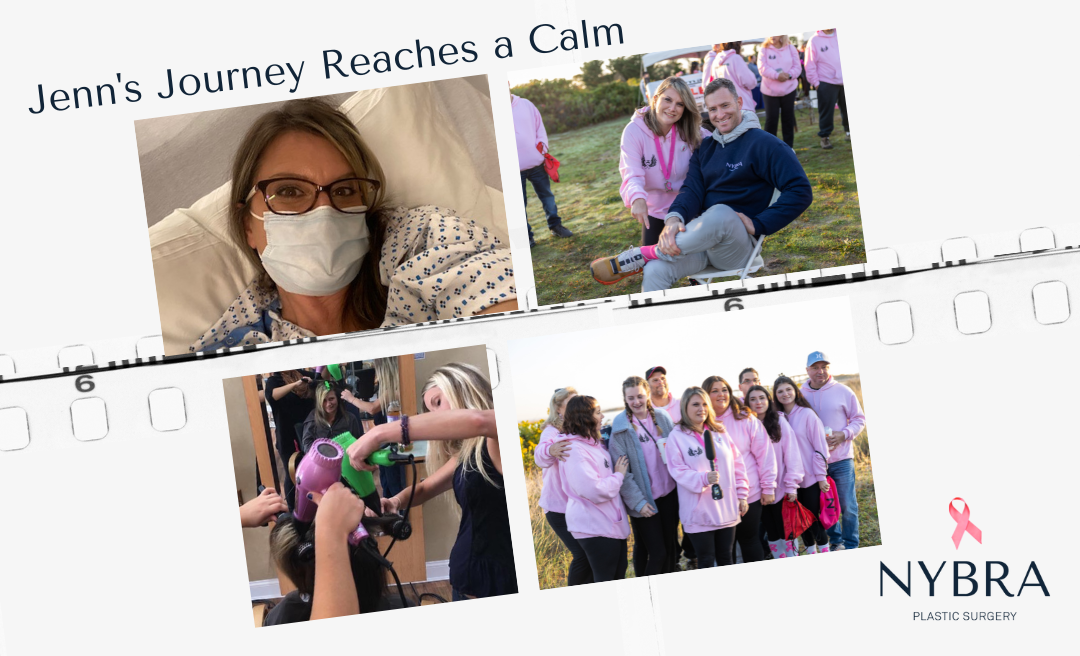Single, Under 40 With Breast Cancer: a Conversation with Mollie Sugarman and Dr. David Light
November 7, 2022
The Clinical Director of the Patient Empowerment Program, Mollie Sugarman, and Dr. David Light, kicked off a new project designed to foster and continue conversations about breast cancer in individuals through all walks of life. Their first discussion, “Single, Under 40 with Breast Cancer,” hones in on the unique effects of a cancer diagnosis on single, younger women.
While many of the issues diagnosed individuals face transcend age, there are challenges that are unique to this particular population. Dr. Light’s patients, Christine, Patricia, and Suzy, were all diagnosed under 40 and developed a strong bond through our Patient Empowerment Program (PEP). That bond helped them navigate some of the key experiences that they were gracious enough to share in this video. We are most grateful to these incredible women for their willingness to be a part of this project.
Watch the full conversation or read on for a few impactful questions from Dr. Light and Mollie and their answers.
How do you see this diagnosis impacting you differently than it would someone older?
All three patients agreed that dynamics are extremely different for people who are married with children. Patients who have already had those experiences do not undergo the stress of wondering whether treatment will impact their ability to do those things. A cancer diagnosis imposes disorder under any circumstances and can be even more unsettling for those who are less established in their lives and relationships.
“Having a cancer diagnosis at the age of 38, being that it’s also in the breast, being single, no kids—people that are older tell you that it’s not a big deal, but it’s life changing. When you meet someone, how do you tell them?” Patricia said.
Christine, who was diagnosed at 39, echoed Patricia’s sentiments. “Being diagnosed at a younger age, not married, single, no children, never experienced the joys of motherhood, haven’t had a connection with a partner who I fell in love with and we got married, I’m like oh my gosh, how are people going to be? Are people going to know my breasts aren’t real? Can people tell?”
Christine also brought up a less-discussed point: breastfeeding. She said she was concerned about being able to breastfeed her future children as part of maternal bonding. While her mother pointed out that she was not breastfed, and they have a strong connection, she said it still factored into her thinking in a way that would not have been necessary had she already had children.
How do you manage the stresses of dating and meeting new people romantically?
“Forging relationships is hard enough, especially in New York City. It’s hard to find that significant other…and the question that I always had was: how can I not only find that significant other, but now tell him that this had happened. Will somebody accept me? Will somebody want to be with me? Will somebody understand and support that this had happened and could potentially factor into the relationship from a children’s standpoint or down the road?” Suzy said.
Suzy was diagnosed just shy of her 30th birthday. While she has yet to pursue a new relationship since treatment, she said she feels that the most important first step is to learn to love yourself.
Patricia shared an incident in which someone learned that she had had breast cancer on an early date. Unfortunately, “the look on his face said it all,” she said.
Mollie offered the idea that sharing your health status as a young person offers a kind of test of potential strength and acceptance within a relationship. “You might know very quickly upfront where someone stands on that and how supportive they might be.”
How did treatment impact your friendships and social lives?
“My mastectomy was May 4th, 2021. My best friend was pregnant with her second child, the baby shower for her second child was that Saturday. It hurt my heart that I couldn’t be there,” Christine said.
From big events, like baby showers and weddings, to small, routine social matters, like evenings out, cancer diagnosis and treatment sidelined all three women in ways that those in a less social phase of life might not have felt. Suzy chose to tell very few people, which kept her separated from her community. Even those who did share their diagnosis with more people felt that it was difficult to talk about it with their peers. That sense of isolation made NYBRA’s PEP even more important to them.
“Family and friends were amazing support systems, but it’s really hard to put yourself in the shoes of somebody if you haven’t been there or if you’re not there. This is definitely something different,” Suzy said.
Patient Spotlight: Jenn’s Journey Reaches a Calm
“My journey is ongoing, and if I can help one person or make somebody feel comfortable listening to my journey, then I was successful,” our…
